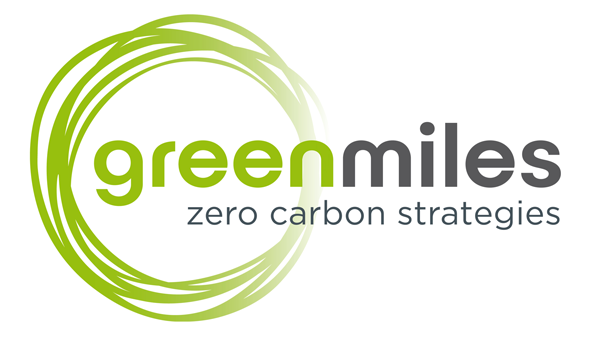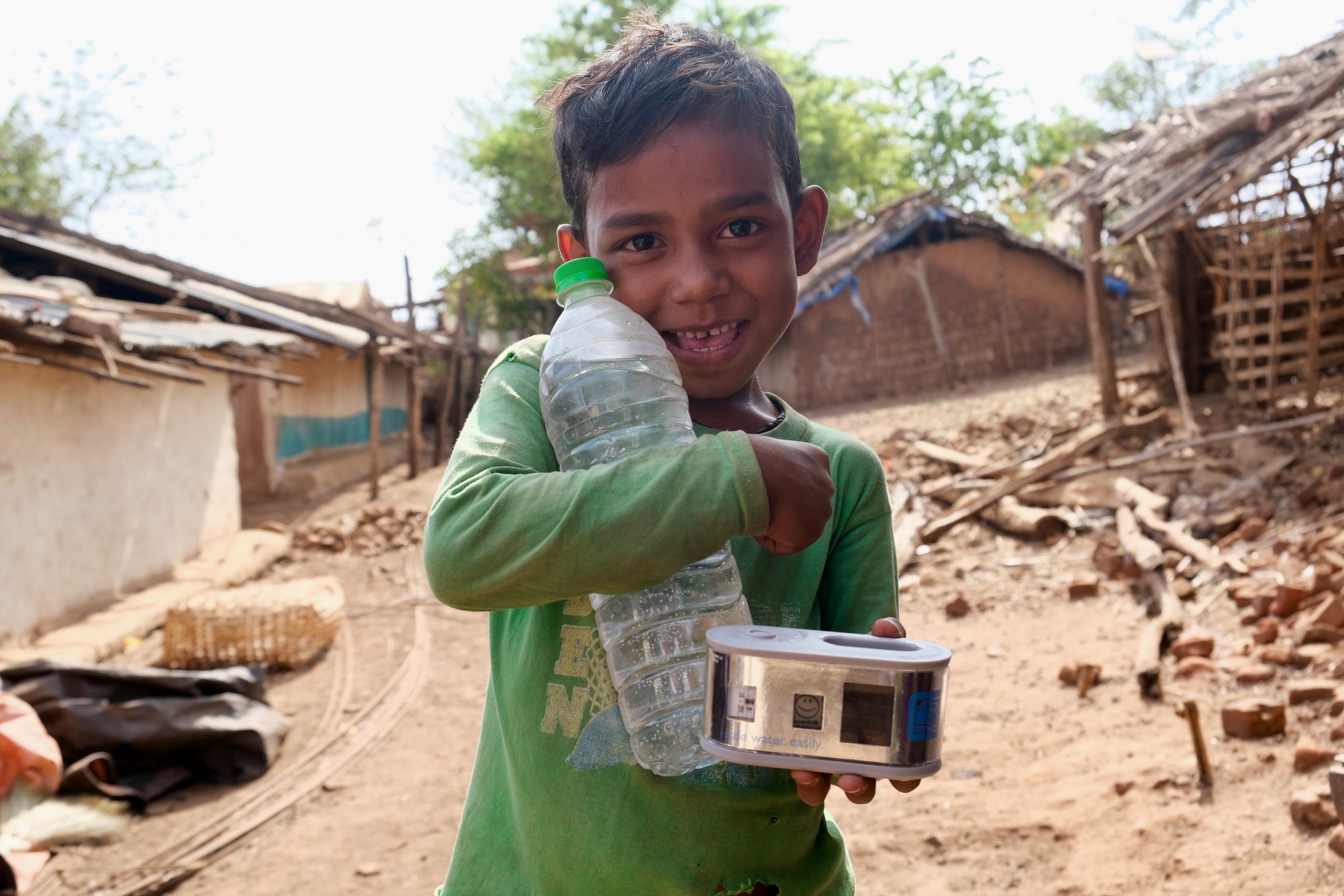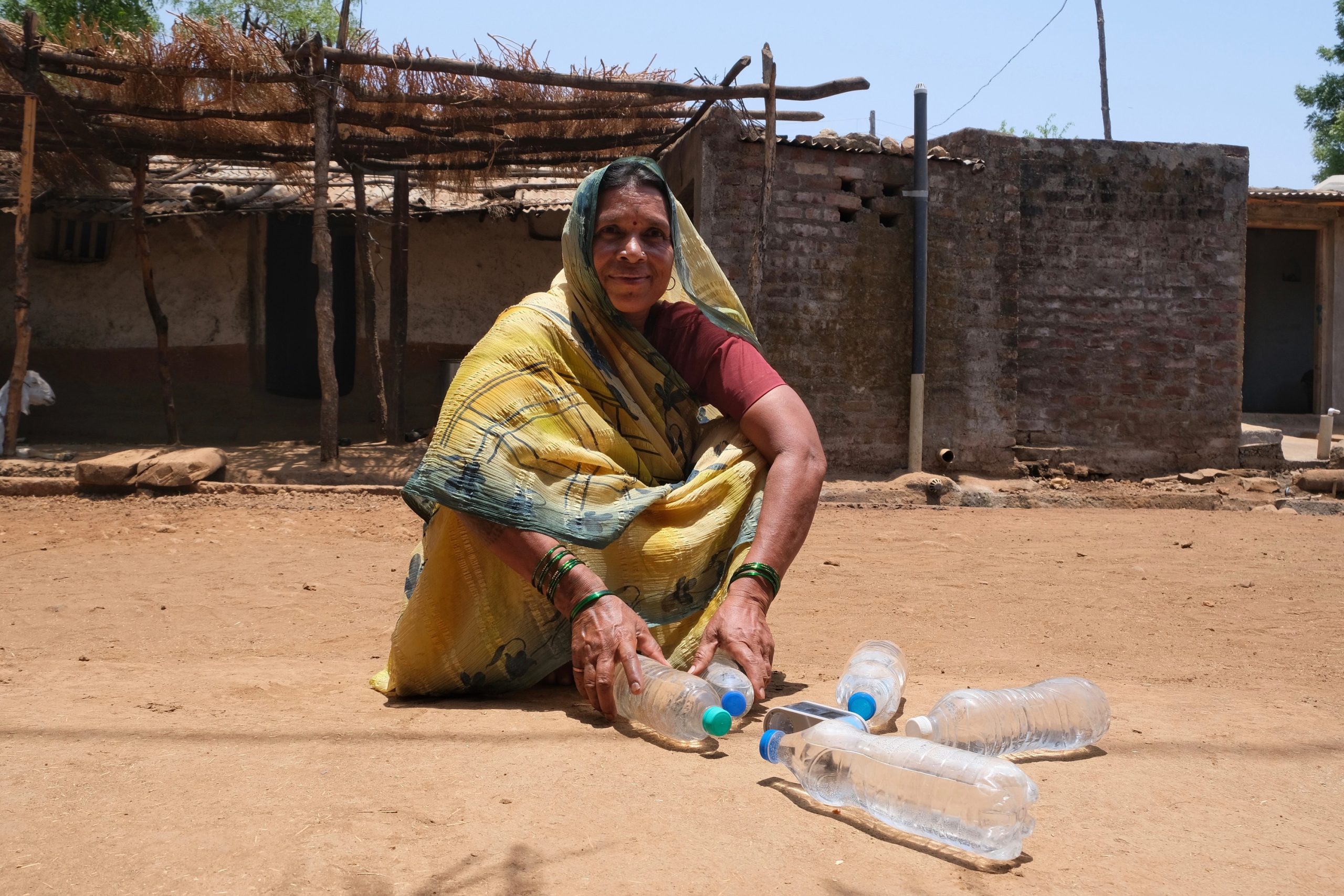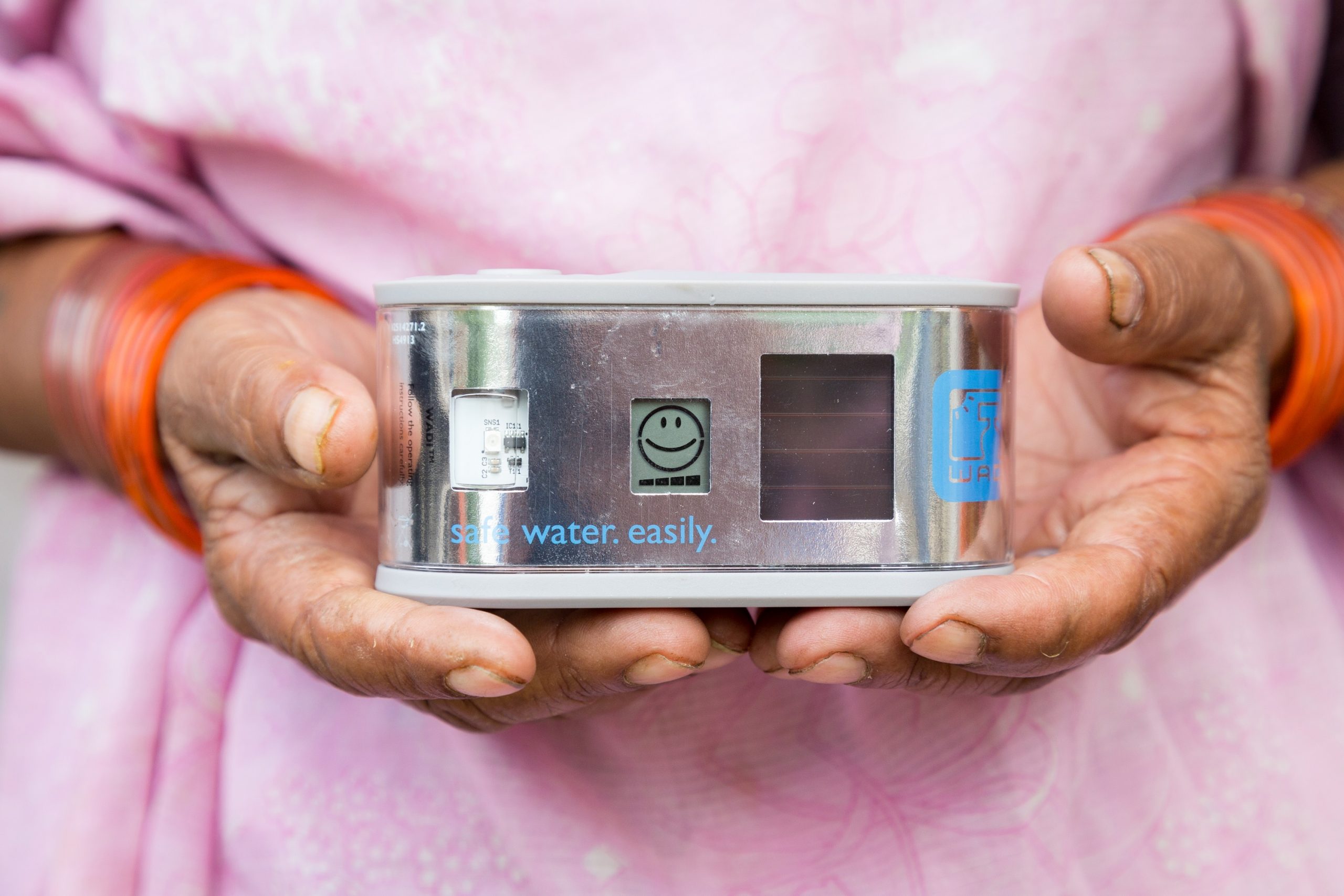Solar water disinfection in India
The demand for safe water solutions and climate change mitigation is undeniable in India, and new household water treatment solutions are entirely in line with the government’s drive to provide safe drinking water to the population.
The Water & Climate India project provides households in rural India with access to safe drinking water through the solar water disinfection (SODIS) method with “WADI”. The project targets marginalized communities in the tribal belt of central India and is certified with the Gold Standard for the Global Goals.
Safe water for people and the environment
Approximately 75.8 million people in India do not have access to safe drinking water (5.5% of the total population), as polluted rivers and inadequate storage infrastructure have led to a water deficit over the years. There is a heavy reliance on untreated sources of drinking water, most of which are contaminated by the discharge of industrial effluents or inadequate sanitation facilities.
The use of contaminated water can severely impact human health and well-being and result in a significant economic burden. It is estimated that nearly 21% of communicable diseases in India are related to water pollution. About 15.6 million cases and more than 2400 deaths were reported in India in 2018 due to diseases primarily caused by biological contaminants in water. The most widespread diseases include cholera, typhoid, viral hepatitis, and acute diarrheal diseases. The economic cost of these waterborne diseases is estimated at $600 million annually, with 73 million working days lost. According to Jai Prakash Adda, Minister of Health and Family Welfare, diarrheal diseases are the cause of 60% of all deaths in India, making them the leading cause of death.
The project aims to reduce the burden of waterborne diseases and improve access to safe water at the household level. Awareness campaigns for WASH interventions and water treatment using the solar water disinfection (SODIS) method with WADI are the focus.
The project specifically targets households in rural communities that do not have access to safe drinking water sources and disinfect water by boiling it with firewood.
Ecological effects:
- Reduction of CO2 emissions per year by reducing the unsustainable use of firewood
- Reduction of deforestation and protection of forests important for the ecosystem
- Establishing and strengthening collaboration and participatory stakeholder engagement to support sustainable development in India
Positive social and economic co-benefits:
- Provision of clean drinking water
- More than 250,000 people are no longer at risk of waterborne diseases
- Reduction in health care costs, reduction in days absent from school/work and the cost of firewood to boil water, and an associated increase in capacity for education and income generation
- Raising people's awareness of waterborne diseases and their transmission and basic hygiene protocols at an early stage
- Strengthening the role of women as providers of safe water and as key stakeholders in WASH management
- Inclusive program design that addresses the needs of vulnerable community members, tribal communities, and people with disabilities





